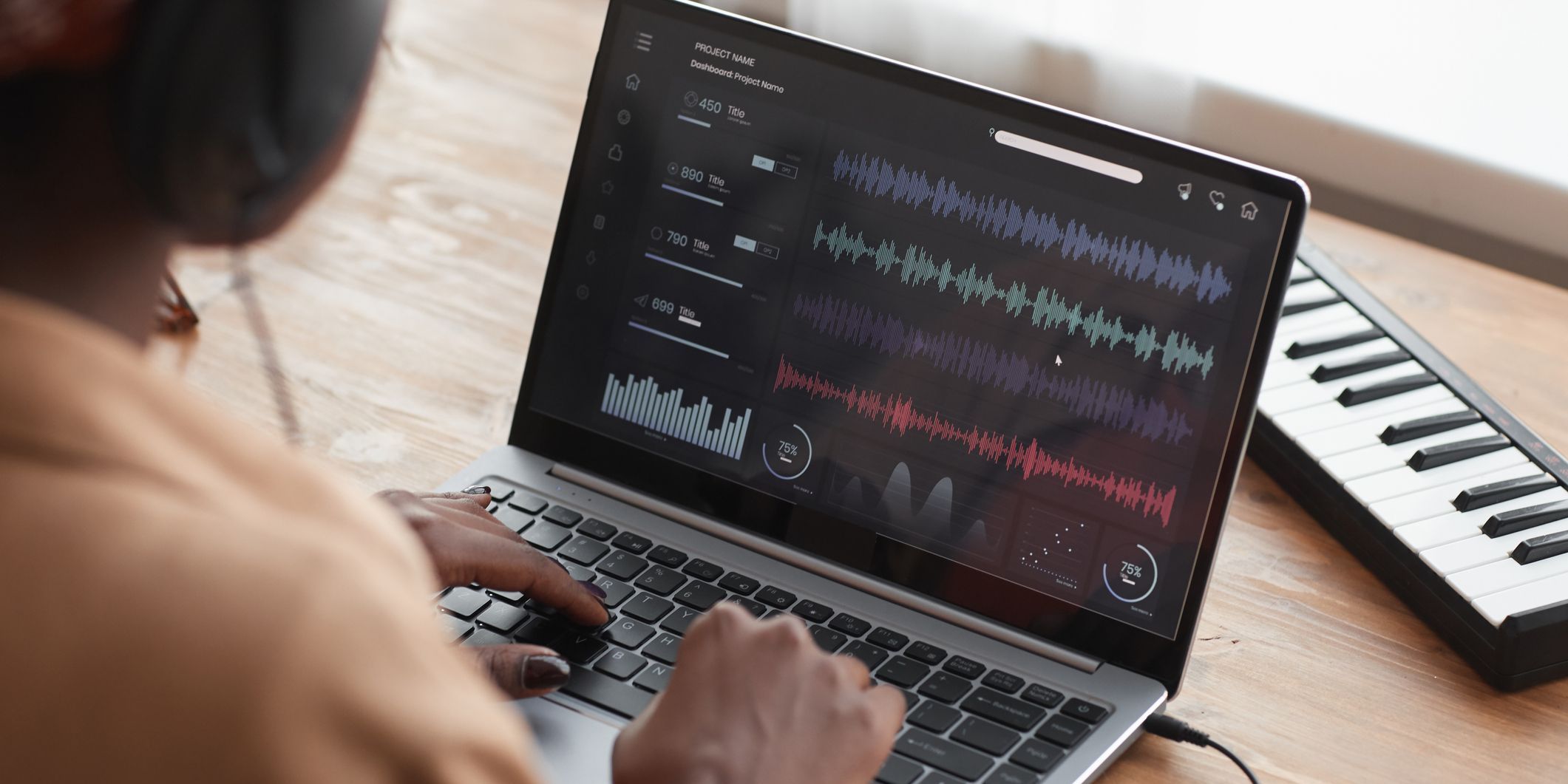What is a Music Editor?
A music editor works behind the scenes in film, television, or other media to make sure music fits perfectly with the story being told. They don’t usually compose music themselves but instead take existing tracks or a composer’s work and edit them so the timing, mood, and flow match what’s happening on screen. For example, they might adjust the length of a song so it lines up with a dramatic scene or fade the music in and out to highlight dialogue.
Music editors also act as a bridge between the director and the composer. They help communicate what kind of musical style or feeling the director wants, organize “temp tracks” (temporary pieces of music used during editing), and ensure the final score sounds polished and supports the overall vision of the project. In short, they’re problem-solvers and storytellers, making sure music enhances the emotion and pacing of a production.
What does a Music Editor do?

Duties and Responsibilities
A music editor has in important role in shaping the sound and emotional impact of a project, ensuring that music fits seamlessly with the visuals and storytelling. The duties and responsibilities typically include:
- Collaboration with the Creative Team: Music editors work closely with composers, directors, and sound designers to fully understand the creative vision. This collaboration ensures that every musical choice enhances the narrative, sets the right mood, and complements other audio elements like dialogue and effects.
- Music Selection and Editing: Choosing the right pieces of music and arranging them to fit specific scenes is central to the role. Editors may adjust tempo, cut or loop sections, and layer multiple tracks to achieve the desired emotional or dramatic effect.
- Synchronization: Precise timing is critical. Music editors align musical cues with on-screen action, dialogue, and sound effects to create a cohesive and immersive experience for the audience.
- Technical Preparation: Preparing music for final production involves tasks such as converting formats, cleaning up audio tracks, and ensuring compatibility with recording, mixing, or mastering processes. Attention to technical detail prevents problems during later stages of production.
- Problem-Solving: Challenges like mismatched timing, licensing restrictions, or audio glitches are common. Music editors must identify solutions quickly to keep the project on schedule and maintain quality.
- Documentation: Maintaining detailed cue sheets and edit notes is essential. These records track which pieces of music are used, where edits occur, and how tracks integrate into the production, providing clarity for the entire team.
- This blend of creativity, technical skill, and organizational ability makes the music editor an essential part of any production, helping bring the soundtrack to life in harmony with the story.
Types of Music Editors
Music editors come in different types, each specializing in specific aspects of music work for film, television, or other media. Here are the main types:
- Spotting or Temp Music Editors: These editors work early in the production process to place temporary music tracks, called “temp tracks,” into a project. This helps directors and producers envision how the final score will feel and guides composers in creating the final music.
- Dialogue and Music Editors: Focused on balancing music with dialogue, these editors ensure that the music complements spoken lines without overpowering them. They adjust volume levels, timing, and placement to maintain clarity and emotional impact.
- Score Editors: Score editors handle the composer’s written music, preparing it for recording or digital production. They may correct notation errors, organize sheet music, and ensure that the score matches the director’s vision and timing requirements.
- Digital or Technical Music Editors: Specialized in using software and digital tools, these editors manage the technical aspects of music integration, including syncing cues, editing digital audio, and preparing tracks for mixing and mastering.
- Post-Production Music Editors: Working later in the process, these editors refine and polish the final music, making last-minute adjustments, coordinating with sound designers, and ensuring the final soundtrack is seamless and professional.
What is the workplace of Music Editor like?
The workplace of a music editor is usually a quiet, focused studio where every detail of the music can be heard clearly. These rooms are equipped with computers, special editing software, and high-quality speakers, all set up to help editors make precise changes that match the visuals perfectly. The space is designed to let them focus completely on the music without distractions.
Much of the work happens on a computer, where music tracks are edited, arranged, and synced with video. Editors often experiment with different sounds, tempos, and layers to get just the right effect. They also meet regularly with directors, composers, and sound designers to understand the mood and feeling the project needs. These conversations make sure the music enhances the story and supports the emotions on screen.
Deadlines can sometimes be tight, so the work can be busy and very detail-focused. Despite that, the environment is usually calm, allowing editors to concentrate and think creatively. The job combines technical skill, artistic judgment, and teamwork, making it both challenging and rewarding as editors help bring a project’s music—and the story itself—to life.
Frequently Asked Questions
Music-Related Careers and Degrees
Careers
- A&R Administrator
- A&R Coordinator
- A&R Representative
- Booking Agent
- Cabaret Performer
- Choir Director
- Composer
- Conductor
- Digital Remastering Engineer
- Drag Performer
- Ethnomusicologist
- Jingle Writer
- Librettist
- Live Sound Engineer
- Lyricist
- Music Arranger
- Music Artist
- Music Business Manager
- Music Contractor
- Music Copyist
- Music Critic
- Music Editor
- Music Executive
- Music Historian
- Music Librarian
- Music Manager
- Music Producer
- Music Promoter
- Music Publicist
- Music Publisher
- Music Supervisor
- Music Teacher
- Music Therapist
- Music Studio Owner
- Musician
- Orchestrator
- Performer
- Piano Accompanist
- Piano Tuner
- Recording Engineer
- Road Manager
- Session Musician
- Singer
- Songwriter
Degrees